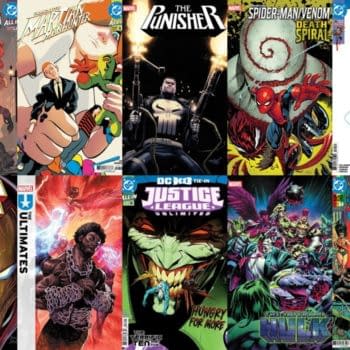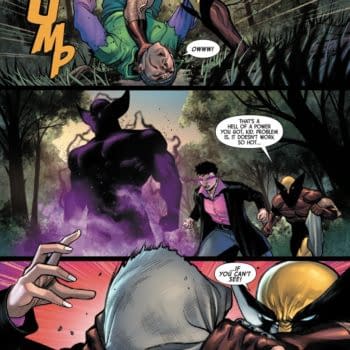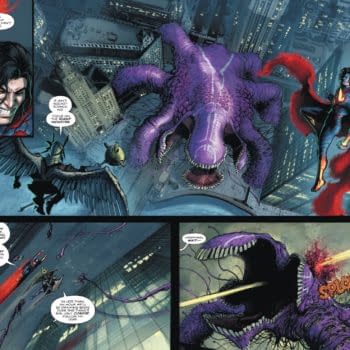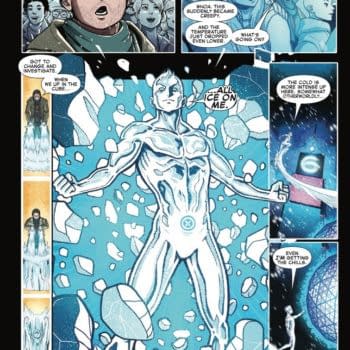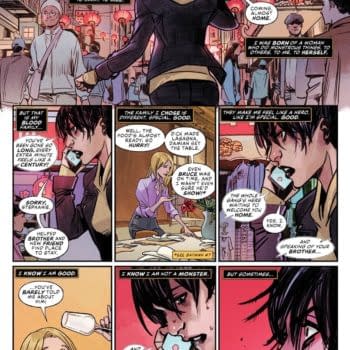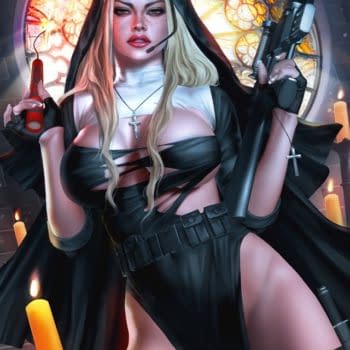Posted in: Comics | Tagged: cb cebulski, charles soule, Declan Shalvey, Gerry Dugan, mahmud asrar, Marvel Comics, NYCC, Shawn Crystal
Breaking Into Comics The Marvel Way
Michael McDermott writes for Bleeding Cool:
Just like Martin and Kendrick… Michael has a dream. It's a simple one really, I'd like to pay my bills writing comics for a living. So, with this in mind, I sat my @$$ in the front row of the instructional Marvel panel on how to do so on Friday and listened to the advice of six dudes who have already done so: C.B. Cebulski, Declan Shalvey, Shawn Crystal, Mahmud Asrar, Gerry Dugan and Charles Soule.

Shawn Crystal: "It's tough, but no one's out to get you." Network, attend conventions, meet people on the same path as yourself. Most importantly, when an editor tells you "I really like your work, but I have nothing to match your style", believe him. It's not ALWAYS a blow off, but sometimes a fact. The right project for the right person can make all the difference in the world.
Mahmud Asrar: "Even if it seems impossible, there's always a way!". Be persistent. He worked for FREE (yes, this goes out to all you guys trying to charge a hundred bucks a page with zero published credits to your name) to get comics made initially and he stressed that your best portfolio is your published work. Every completed project is an audition for your next gig. Use the internet, editor's hire folks who are reliable and professional.
Declan Shavey: "You have to think of it as a long game." He emphasized that style isn't just the way you draw, but how you tell a story. Trust your artist to do their job and don't bog them down in paragraph after paragraph of panel description.
Charles Soule described trying to get an editor's attention as "Hunting versus fishing. Don't oppressively target one editor, cast a bunch of lines and follow up on the nibbles." Be able to deliver when called upon and be consistent. Don't relentlessly stalk an editor and pester them with questions, it'll turn them off. They have a job to do and you aren't always going to be their priority. Accept this or suffer.
C.B. Cebulski: "It's in an editor's best interest to see YOU get better." In 15 years, he's only hired 3 artists on the spot. Conventions are for networking, make connections. Many recommendations for work come from your peers, fellow artists and writers. Comics is a community, check out Digital Webbing, Penciljack, and the Millar World and Jinx World forums if your looking for people who share your passion. The language of storytelling is international, you never know where you'll find your creative soul mate, be open.
C.B. also revealed the secret to finding an editor's email, but I've been grinding at this gig for far too long and publishing work for the last two years to my own financial detriment and I'll be damned if I'm letting that one slip to anyone who wasn't in the room!!!









